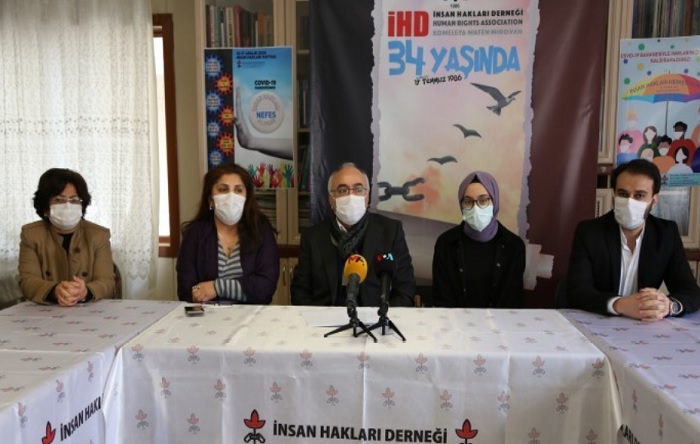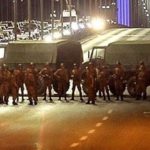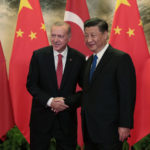
Special units organized within the state apparatus are responsible for enforced disappearances in Turkey, and they should be thoroughly investigated by parliament, the Human Rights Association (İHD) said at a press conference they held together with the daughter of Hüseyin Galip Küçüközyiğit, a former bureaucrat who has been missing since December 29.
İHD officials said enforced disappearances violate right to liberty and security and contravene the prohibition of torture and inhuman treatment, basic rights and principles upheld by international conventions. The Turkish government needs to remain within the bounds of the law and avoid intimidating its citizens, the officials said.
The İHD called on the authorities to find Hüseyin Galip Küçüközyiğit and Yusuf Bilge Tunç, another former bureaucrat who has been missing since August 6, 2019.
Küçüközyiğit went missing on December 29 after he left his office in Ankara. His family started a campaign on social media expressing their fear that he might have been abducted by Turkish intelligence.
Despite several applications a prosecutor was not assigned to investigate the case of Küçüközyiğit until 18 days after his disappearance. His whereabouts are still unknown.
His daughter Nursena Küçüközyiğit said she was able to obtain security camera footage from the building her father worked in and saw three men following him. The recordings were circulated widely on social media with the hashtag “#HüseyinGalibibulun” (FindHüseyinGalip).
On gün oldu,ofisinin kamera kayıtlarında babamı takip eden üç kişi var,ihtimalleri düşünmekten korkuyor ve soruyorum:
Babam Nerede? pic.twitter.com/MiLeRxhR93— Nursena Küçüközyiğit (@NeredeBabam) January 7, 2021
Küçüközyiğit was a successful lawyer who served as the chief legal counsel for the Turks Abroad and Related Communities Agency (YTB). He was fired from his job by a government decree in the aftermath of a coup attempt in July 2016. He was later sentenced to six years, three months in prison for “membership in the movement” due to his alleged ties to the Gülen movement, a faith-based group inspired by Turkish cleric Fethullah Gülen. Küçüközyiğit was released from pretrial detention pending appeal.
Tunç worked in Turkey’s Undersecretariat for the Defense Industries, the government agency responsible for defense procurement, and he was also fired with an executive decree after the abortive putsch of 2016. According to his father, Mustafa Tunç, neither the police nor the prosecutor cooperated with the family in finding their son.
Turkish President Recep Tayyip Erdoğan has been targeting followers of the Gülen movement since the corruption investigations of December 17-25, 2013, which implicated then-Prime Minister Erdoğan, his family members and his inner circle.
Dismissing the investigations as a Gülenist coup and conspiracy against his government, Erdoğan designated the Gülen movement as a terrorist organization and began to target its members. Erdoğan intensified the crackdown on the movement following a coup attempt on July 15, 2016, that he accused Gülen of masterminding. Gülen and the movement strongly deny involvement in the abortive putsch or any terrorist activity.
More than 30 people have reportedly been abducted by Turkish intelligence officers since 2016. Most of the abductions targeted members of the Gülen movement. In some cases, the missing persons have reappeared in police custody.
Apparently intimated, all of them except two kept their silence after their reappearance. One of them, Gökhan Türkmen, however, revealed in a court hearing on February 10, 2020 that he had been held incommunicado at a black site in Ankara run by Turkey’s intelligence agency and subjected to severe torture during his 271-day stay. Türkmen was the object of threats and was sexually harassed and abused during his enforced disappearance.
The other man, Yasin Ugan, also testified at a court hearing on June 23 that he had been tortured for six months after being kidnapped on February 13, 2019 by security officers, with his head covered with a black plastic bag most of the time.
According to a report drafted by a group of lawyers from the Ankara Bar Association’s Human Rights Center who visited the prison to speak with the once-missing persons, lawyers for the missing persons were intimidated by prison management and threatened by the guards. They were never allowed to have face-to-face meetings with their lawyers or families, and in any meetings they do have, a government official is present; therefore, they have not had the opportunity to recount the torture and inhuman treatment they endured.
Source: SCF



